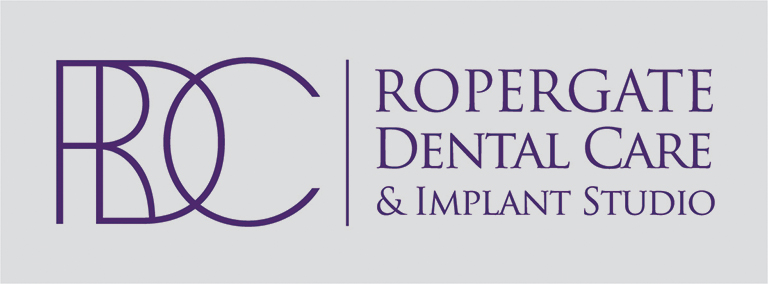
Can Bad Breath Affect Confidence?
Bad breath, or halitosis, is a common problem that can significantly affect an individual’s confidence and self-esteem. While many people experience bad breath from time to time—such as after eating certain foods or waking up in the morning—chronic bad breath can lead to feelings of embarrassment, anxiety, and social withdrawal. In this blog, we’ll explore the common causes of how it can impact confidence, and the best ways to manage and prevent it.
Common Causes
Bad breath can stem from a variety of sources. Sometimes, it’s a temporary issue that can be fixed with simple changes to your oral care routine, but in other cases, it may be a sign of a more serious underlying condition. Understanding the causes is the first step toward improving it.
Poor Oral Hygiene: This is usually the most common culprit. When you neglect to brush and floss regularly, food particles and bacteria can build up in your mouth. These bacteria break down food debris, producing sulfur compounds that cause unpleasant odours. Additionally, failing to brush your tongue can cause bacteria to grow, worsening the problem.
Dry Mouth: This is another significant cause of bad breath. Saliva is essential for keeping your mouth moist and helping to wash away food particles and bacteria. When there is insufficient saliva, either due to dehydration or a medical condition, bacteria can thrive, leading to bad breath. Conditions that cause dry mouth, such as sleep apnea, medication side effects, or salivary gland problems, should be addressed with your dentist or doctor.
Gum Disease: Including gingivitis and periodontitis, this a common cause of chronic bad breath. These conditions are caused by a build-up of plaque on the teeth, which leads to inflammation and infection in the gums. As the infection progresses, it can result in an unpleasant odour due to the bacteria in the infected areas. If left untreated, gum disease can worsen and lead to more severe dental issues, including tooth loss.
Tobacco Use: This is well known for causing bad breath, as well as staining teeth and irritating the gums. Smoking and chewing tobacco products leave behind a lingering smell in the mouth and lungs. These products also reduce saliva production, making the mouth drier and providing an ideal environment for bacteria to thrive.
Certain Foods: Some foods like garlic, onions, and certain spices contain sulfur compounds that can be absorbed into the bloodstream and exhaled through the lungs. This type of bad breath is usually short-lived, but it can be inconvenient, particularly in social or professional settings.
Underlying Health Conditions: Some conditions may also contribute to bad breath. Conditions such as diabetes, gastrointestinal reflux disease (GERD), respiratory infections, or even liver and kidney disease can cause halitosis. If bad breath persists despite good oral hygiene, it may be worth consulting a healthcare provider to rule out a more serious condition.
How Bad Breath Can Affect Confidence
While bad breath might seem like a minor issue, its effects on confidence can be far-reaching. Many people with chronic halitosis experience anxiety in social situations, affecting their personal and professional lives. Here’s how it can influence self-esteem:
- Social Anxiety
- is one of the most immediate effects of bad breath. Individuals who suffer from halitosis may feel extremely self-conscious, especially in close-knit social environments. The fear that others might notice their unpleasant breath can cause them to avoid talking to others or engaging in conversations altogether. This constant anxiety can lead to social isolation and feelings of inadequacy.
- Professional Challenges
- can arise when bad breath interferes with effective communication. In the workplace, it can be difficult to engage in face-to-face meetings, presentations, or collaborative projects if you’re worried about your breath. People with bad breath may feel reluctant to speak up or interact closely with colleagues, which can hurt their professional image and limit career advancement opportunities.
- Romantic Relationships
- These are often impacted by bad breath. In intimate relationships, it can create physical and emotional distance between partners. Whether it’s during a conversation or physical closeness, the discomfort caused can make both partners feel uneasy. This can lead to communication issues, reduced intimacy, and potentially even the breakdown of the relationship over time.
- Low Self-Esteem
- This is another consequence of horrible breath. The constant worry and self-consciousness associated with halitosis can significantly lower a person’s self-worth. If someone feels that their breath is consistently offensive, they may start to believe that it reflects poorly on them overall, leading to a diminished sense of confidence and self-acceptance.
Identifying Bad Breath: Self-Assessment Tips
While it can be difficult to detect bad breath on your own, there are several ways to assess whether you might have halitosis. Self-assessment can help you determine if you need to seek professional advice.
- The Lick Test: Lick the back of your hand, wait a few seconds for it to dry, and then smell it. If your hand has an unpleasant odour, it’s a good sign that your breath may also be affected.
- The Floss Test: Floss your teeth thoroughly, and then smell the floss. If it has an unpleasant smell, it could indicate that bad breath is present.
- Cupping Your Hands: Cup your hands over your mouth and nose, exhale gently, and then smell the air trapped in your hands. If the breath smells bad, it’s a clear indication that you may be suffering from halitosis.
- Asking a Trusted Friend or Family Member: Sometimes, the most reliable way to know is to ask someone close to you. A trusted friend or family member can give you an honest assessment of your breath.
If any of these tests indicate that you have bad breath, it’s a good idea to visit a dental professional. A dentist can identify the underlying cause and offer appropriate treatments to resolve the issue.
Effective Treatments
If you are struggling with persistent bad breath, there are a variety of treatments available to help. At Ropergate Dental Care & Implant Studio, we offer a range of solutions designed to address the root cause of your bad breath and restore your confidence.
- Professional Dental Cleaning
Regular cleanings by a dental hygienist are essential for removing plaque, tartar, and food particles that can cause bad breath. A professional cleaning will ensure your teeth and gums are healthy, reducing the chances of bacteria and bad odour. - Gum Disease Treatment
If gum disease is the underlying cause of your bad breath, your dentist may recommend treatments like scaling and root planing, which remove plaque and tartar from the gum pockets. Antibiotics or even surgical procedures might be necessary in more severe cases of periodontal disease. - Oral Hygiene Instruction
Your dentist can offer tailored advice on improving your oral hygiene routine. Proper brushing, flossing, and mouthwash use can go a long way in preventing bad breath and keeping your mouth fresh throughout the day. - Dry Mouth Treatment
If dry mouth is contributing to your bad breath, there are several solutions available. Saliva substitutes, increased water intake, or even changing certain medications can help alleviate the symptoms of dry mouth. - Dietary Recommendations
If certain foods are causing your bad breath, your dentist may suggest dietary changes. Cutting back on strong-smelling foods like garlic and onions, as well as increasing your intake of water and fresh fruits, can help maintain fresh breath.
Preventative Measures for Fresh Breath
In addition to seeking treatment, there are several habits you can adopt to maintain fresh breath on a daily basis. These preventative measures are easy to incorporate into your routine and can make a significant difference in your breath’s freshness.
- Practice Good Oral Hygiene
Brushing your teeth twice a day, flossing daily, and using mouthwash are the best ways to prevent bad breath. These habits remove bacteria and food particles that cause odour. - Stay Hydrated
Drinking plenty of water throughout the day is crucial for maintaining saliva production, which helps neutralize bad breath. - Avoid Tobacco Products
If you smoke or use other tobacco products, quitting can dramatically improve your breath and overall oral health. - Chew Sugar-Free Gum or Suck on Mints
Sugar-free gum and mints can stimulate saliva production and provide temporary relief, especially after meals. - Maintain a Balanced Diet
Eating a healthy diet filled with fruits, vegetables, and whole grains helps promote oral health. Avoiding excessive amounts of strong-smelling foods like garlic and onions can also be beneficial.
If you’re struggling, don’t hesitate to schedule an appointment with us at Ropergate Dental Care & Implant Studio in Pontefract. Our experienced team can help identify the cause and provide effective solutions to restore your self-assurance. Book your consultation today to take the first step toward fresher breath and a renewed sense of confidence.
